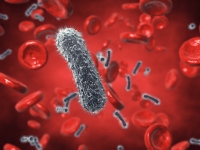Micronutrients Support The Immune System In Fighting Zika And Other Viral Infections
Everyone is exposed to a variety of infectious agents in the environment such as bacteria, viruses, and parasites. Any seasonal change challenges our immune system with new pathogens. This year - even before the start of the flu season - the World Health Organization has declared Zika virus infections an international public health emergency. The Zika virus is not a new virus and is similar to other viruses transmitted by mosquitoes such as West Nile virus, dengue, yellow fever, and Japanese encephalitis. The symptoms of Zika virus infection are similar to normal flu symptoms. They include fever, headache, muscle and joint pain, rash and conjunctivitis. Often there are no symptoms, and in most cases people are not aware that they are infected while they are spreading the virus. Currently, mosquito control is the only way for prevention from Zika infection and there are no treatments available. Therefore, it would be prudent to understand how to support our body’s immune system and protect it against Zika or other viral and infectious pathogens.
An optimally functioning immune system is our main and most powerful weapon to recognize and destroy viruses and other foreign pathogens. Certain cells (lymphocytes) in the immune system help remember specific proteins (antigens) which are produced by infectious organisms. The lymphocyte produce antibodies against the antigens as protection from future attacks. The immune system also depends on protection from specific cells in the blood stream as well as the immune modulating organs (lymphoid organs) such as the thymus gland, bone marrow, lymph nodes, spleen, tonsils, and liver. Moreover, the digestive system also contributes to a healthy immune system and the appendix and Peyer’s patches in the small intestines are important lymphoid organs, which contribute to immunity to antigens.
A healthy lifestyle including a diet rich in fruits and vegetables, frequent hand washing, sufficient sleep, exercise and other measures are necessary for protecting us against infections. However, an optimum supply of micronutrients is also essential to support a healthy immune system. Micronutrients help in different stages of a viral life cycle. Vitamin C helps in inactivation of viral DNA thus limiting viral reproduction. Vitamin C also aids in antibody production and phagocytic function of the white blood cells (WBC). Vitamin C and lysine are important for blocking the collagen digesting enzymes and strengthening connective tissue thereby controlling the spread of infectious agents. Antioxidants such as zinc and selenium support lymphoid tissues in the thymus gland and the function of white blood cells. Astralagus extract is a unique immune stimulating agent that also supports WBC production and it has antioxidant properties. Quercetin and iodine are critical for immunity. In synergy with vitamin C, quercetin acts as an anti-inflammatory agent, and iodine supports the function of the thyroid gland. Intrinsic factor is a vital supporter of the immune system and is critical for the absorption of vitamin B12.
Unlike antibiotics, there is no specific treatment available for viral illnesses, and people turn to supplements to support their immune system and boost internal protection against viruses. However, most take only vitamin C for protection against viruses and thus miss an important aspect of synergy. Vitamin C is necessary for immune system support, but it works more efficiently when combined with other micronutrients such as zinc, quercetin, selenium, and intrinsic factor. The efficacy of supplements to build strong immunity depends on a synergistic combination of micronutrients that help generate healthy blood cells and support other immune system organs.
Ref: R. J. Jariwalla, et al.,Recent Translational Research in HIV/AIDs,InTech Publishers,Ch.25,pp-513-526.
Barbour EK, et al., Int J App Res in Vet Med 2007; 5(1): 9-16
E.K. Barbour, et al., Veterinaria Italiana 2007, 43(1): 43-54
